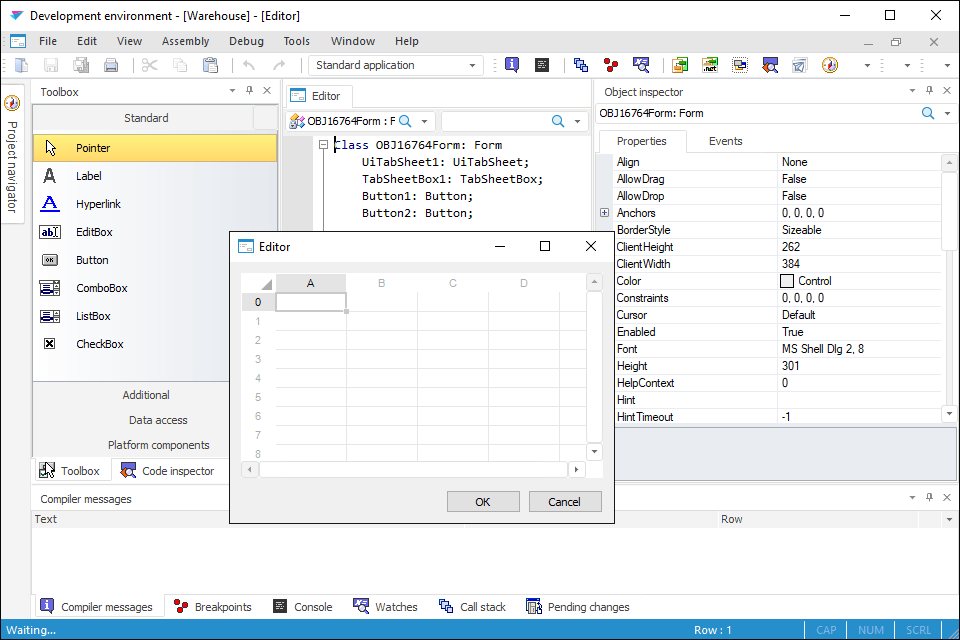
The development environment is a tool designed to create, start, and test custom forms, units, and assemblies.
To open the Development Environment window, select the Tools > Development Environment item, or create an Assembly/Unit/Form/.Net Assembly in the object navigator.
If you select the Create > Form menu item, the development environment window shows an empty form without components:

The dialog box for creating a unit looks the same, but no form is available. Saving a form or unit for the first time shows a dialog box where you can specify a folder to save the form or unit to. When an assembly (.NET assembly) is created, it is saved to the repository object, from which the Create command was executed.
The development of code that can be executed on running web applications has a set of constrains. Using specific classes, properties and methods generates exceptions. Below is a list of resources prohibited to be used in web applications:
It is prohibited to work with the clipboard (use properties and methods for copying/cutting/pasting to the clipboard).
Working with forms is prohibited (the Form class).
It is prohibited to use dialog boxes (dialog boxes implemented in the Ui assembly).
It is prohibited to work with properties defining the status and the position of the mouse cursor.
To check code correctness in development environment, use a special drop-down list. This list includes application options, based on which compilation is run:

If the Web Application mode is selected and the macro text contains the code covered by the aforementioned constraints, the error message "Class/method is not Accessible in Web" is generated.

By default, the standard compilation method with no constraints is used.